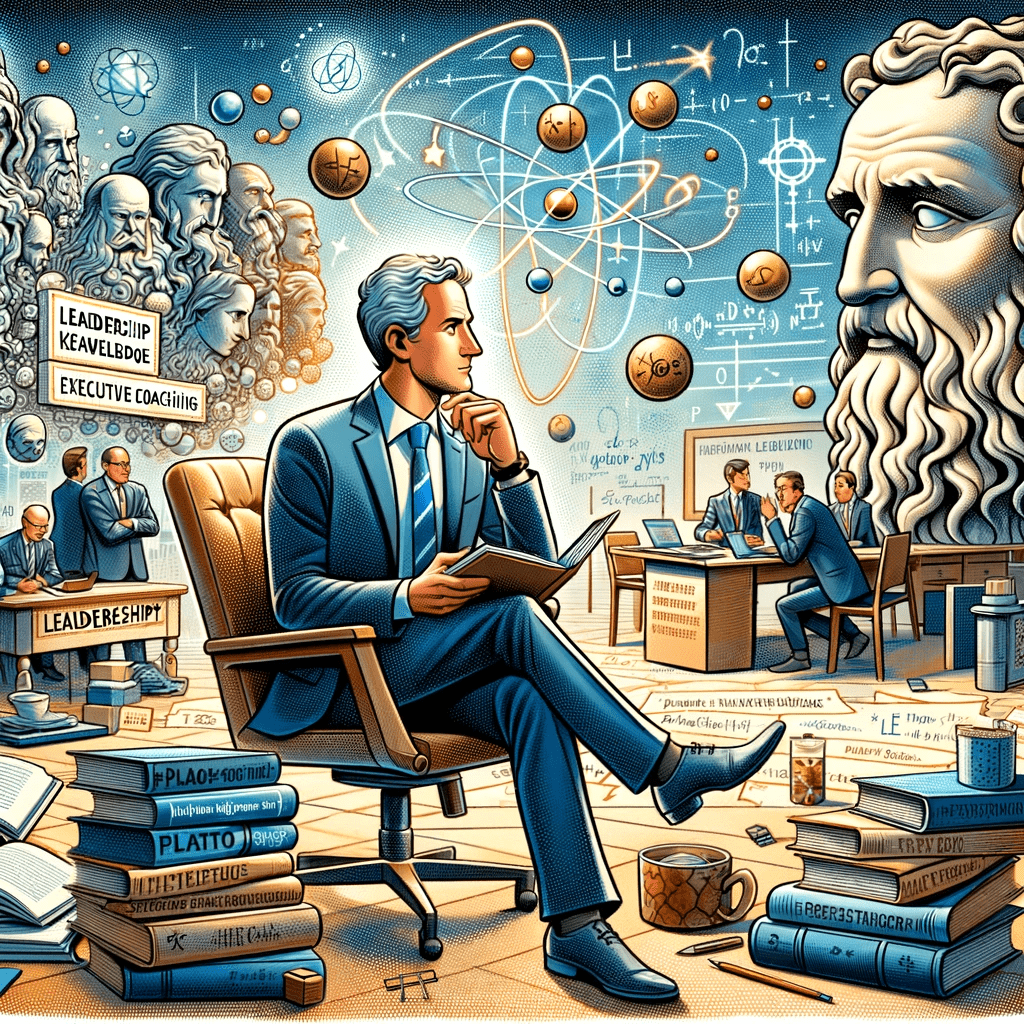
“The question how knowledge should be defined is perhaps the most important and difficult of the three with which we shall deal. This may seem surprising: at first sight it might be thought that knowledge might be defined as belief which is in agreement with the facts. The trouble is that no one knows what a belief is, no one knows what a fact is, and no one knows what sort of agreement between them would make a belief true. Let us begin with belief.”
– Bertrand Russell
The Intriguing Intersection of Knowledge, Leadership, and Executive Coaching
Navigating the Complexities of Knowledge in Leadership
Understanding Knowledge: A Leadership Perspective
The Quest for knowledge, particularly in leadership and executive coaching, is a journey filled with complexities and nuances. Bertrand Russell, in his exploration of knowledge, raised an intriguing point: defining knowledge is challenging because the nature of belief and fact is often ambiguous. This idea resonates profoundly within the realms of leadership and executive coaching, where discerning truth from fact becomes a pivotal skill.
Plato’s Insights: From Philosophy to Leadership
Plato’s philosophy sheds light on this concept. He distinguished between what he called “Truth” and “fact.” In his view, Truth represents a fundamental law, unaltered by sensory perceptions, while facts are interpretations based on our senses. This distinction is critical in leadership, where decisions often hinge on interpreting complex information.
Bridging Philosophical Wisdom and Modern Leadership
Descartes’ Philosophical Contributions
Moving forward to René Descartes, his works like “The Discourse on the Method” and “Meditations on First Philosophy” revolutionized the way we approach knowledge and truth. His famous statement, “I think, therefore I am,” underscores the importance of self-awareness in leadership. It suggests that a leader’s consciousness and ability to think critically are fundamental to their existence and decision-making process.
The Relevance of Descartes in Executive Coaching
In executive coaching, Descartes’ principles can be transformative. His approach to skepticism, where he suggests doubting everything that cannot be proven, encourages leaders to question assumptions and look beyond surface-level information. This critical thinking is essential in navigating the complexities of business and leadership.
The Role of Particle Physics in Leadership Understanding
The Quest for a Unified Theory
The pursuit of a “theory of everything” in particle physics parallels the search for a unified leadership approach. Just as physicists seek to understand the universe’s fundamental forces, leaders strive to grasp the core principles that drive successful management and decision-making.
Leadership Lessons from Particle Physics
Particle physics teaches us that complex systems can exhibit unexpected behaviors, suggesting that in leadership, one must be prepared for unforeseen challenges and complexities. This understanding is crucial for leaders and coaches who must navigate constantly changing business landscapes.
Applying Philosophical Insights to Modern Leadership
Integrating Knowledge with Action
In leadership and executive coaching, the synthesis of philosophical insights and practical application is key. Leaders must actively integrate theoretical knowledge with their organization’s specific conditions, shaping their decisions with a combination of philosophical insights and practical experience.
The PEAK and Ascent Models in Action
The Ascent and PEAK models provide a framework for this integration. By understanding the philosophical underpinnings of knowledge and truth, leaders can better navigate their organizations towards success, aligning their strategies with fundamental principles of leadership and human behavior.
Conclusion: Embracing Knowledge in Leadership
In conclusion, the exploration of knowledge, from Plato to particle physics, offers valuable insights for leaders and executive coaches. By understanding and applying these principles, leaders can enhance their decision-making skills, foster a culture of critical thinking, and lead their organizations more effectively.
